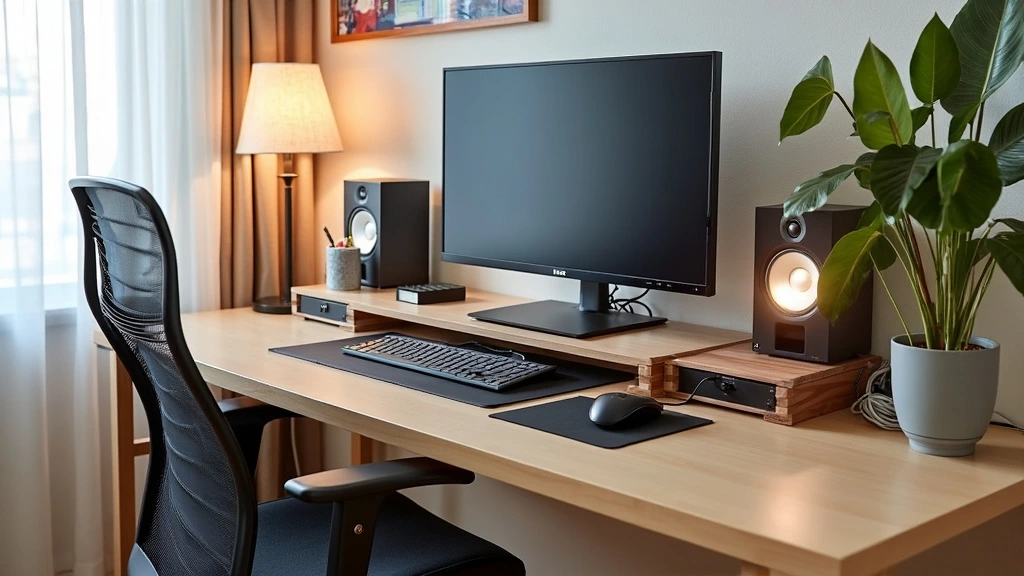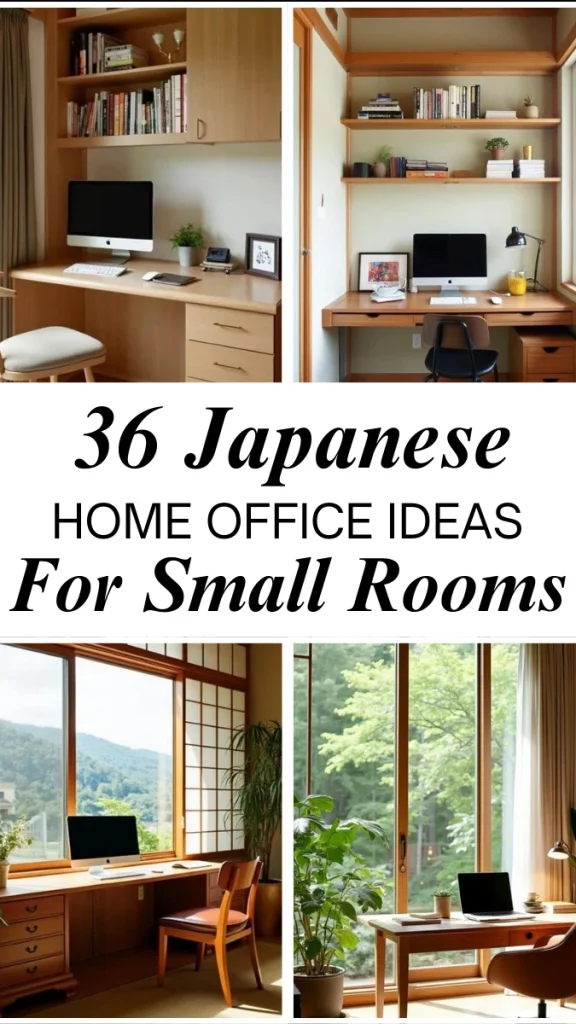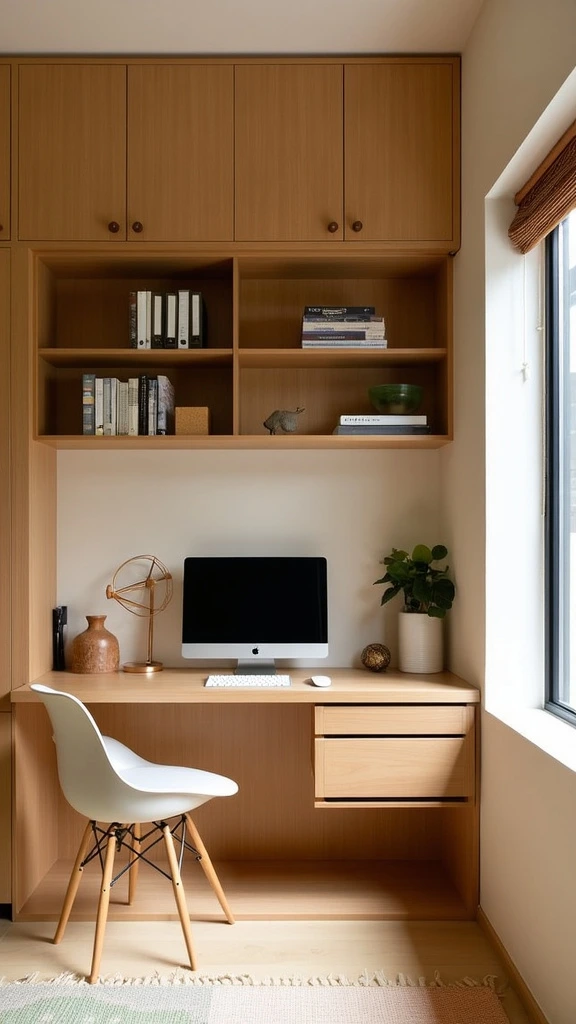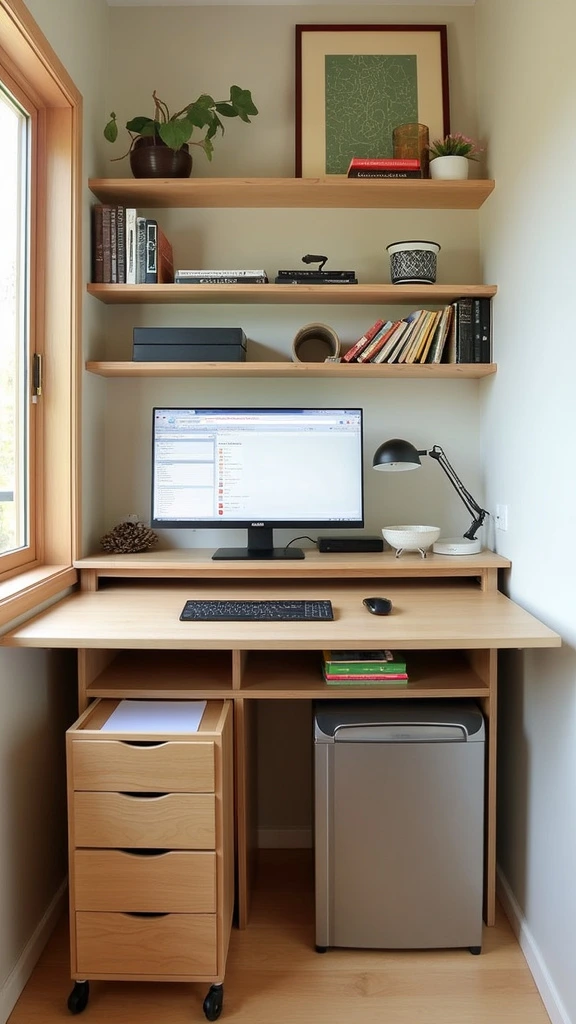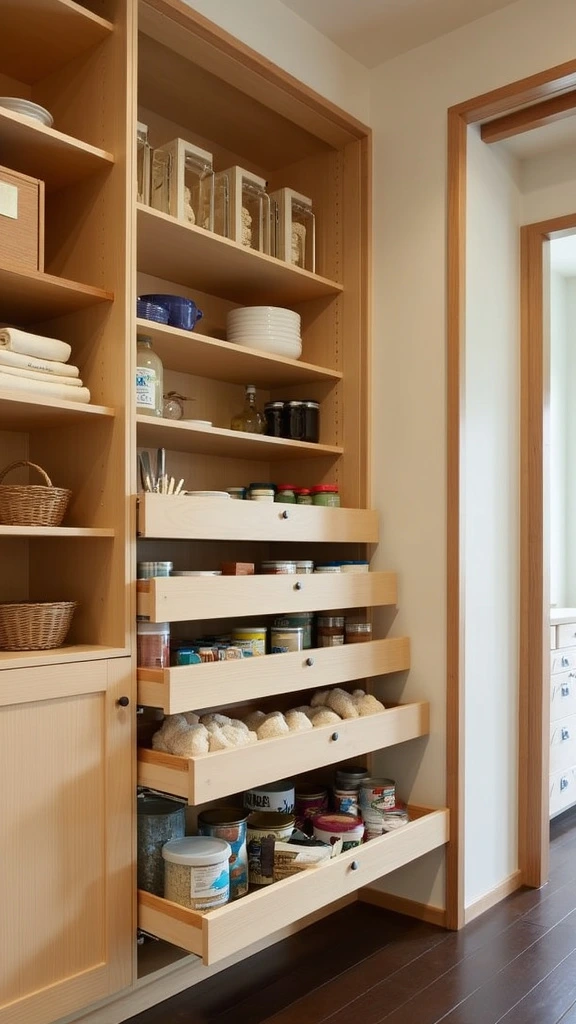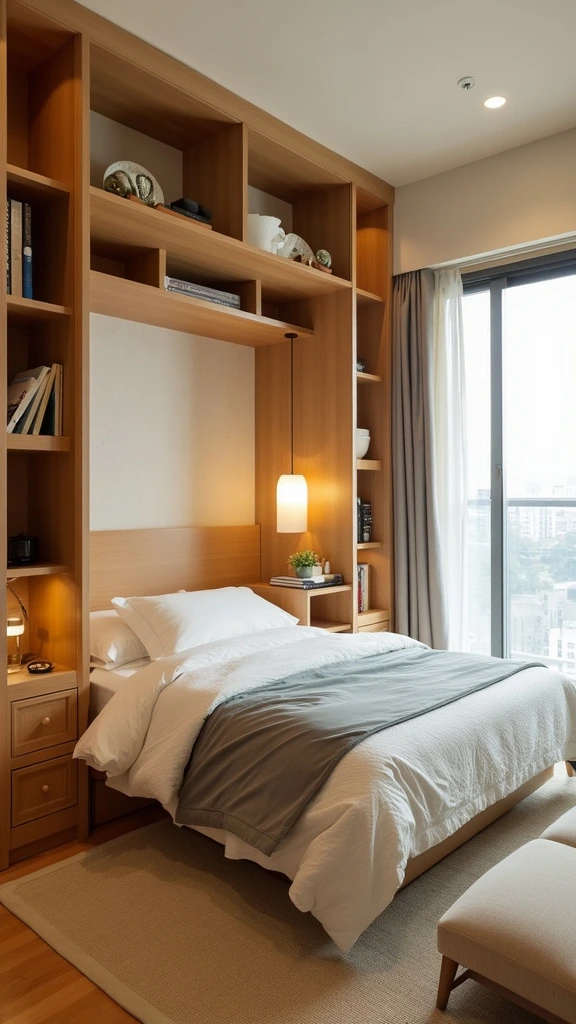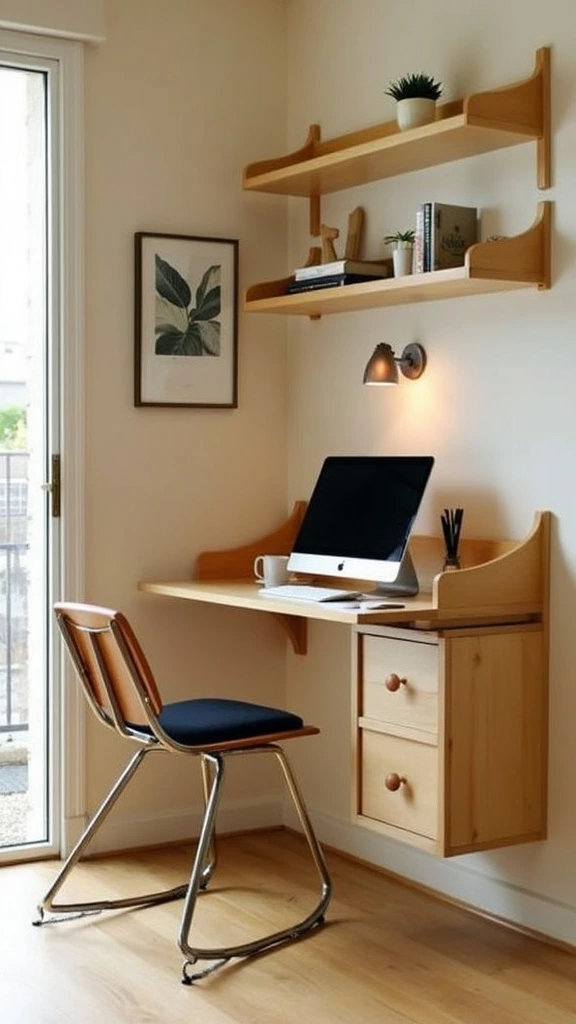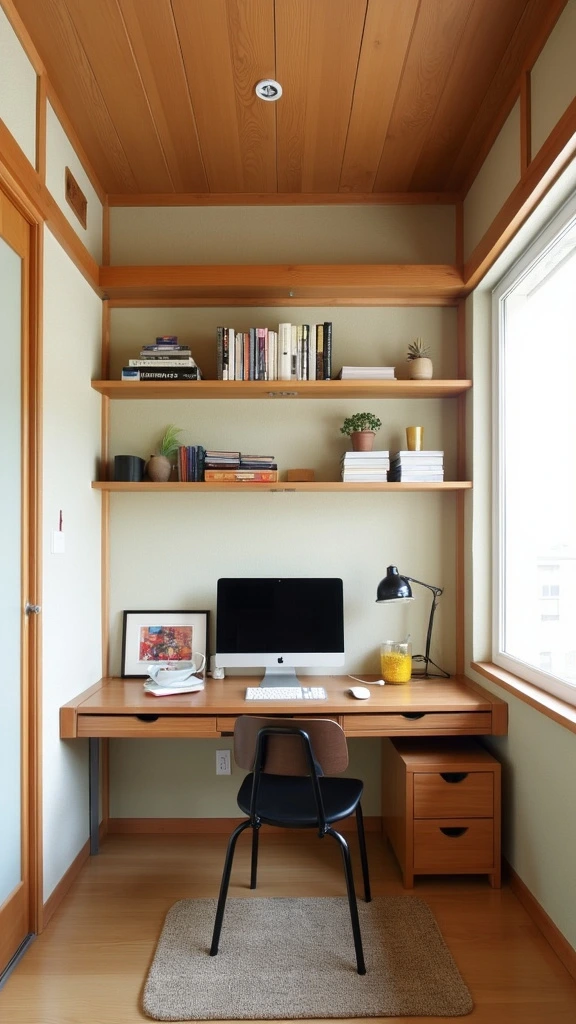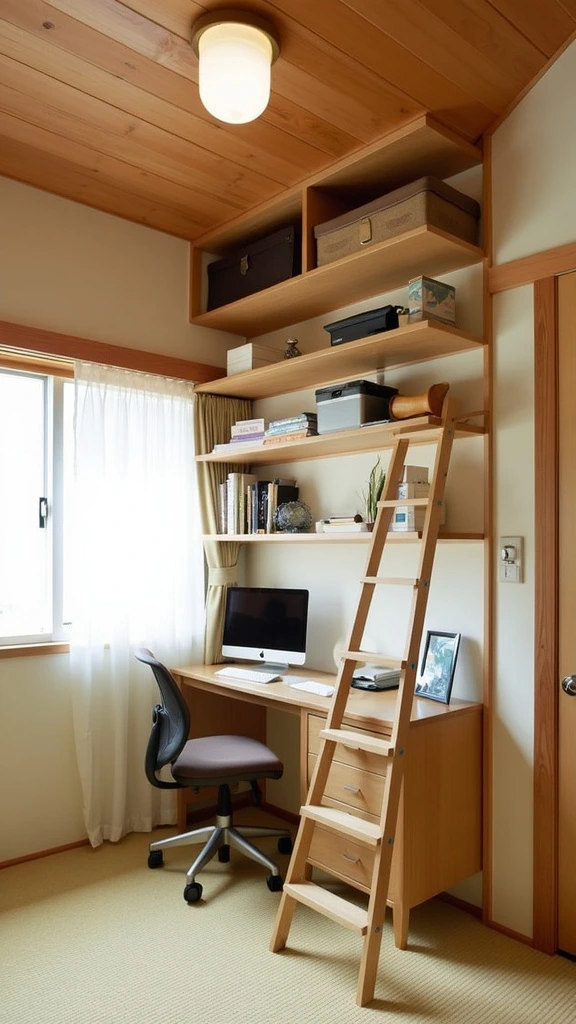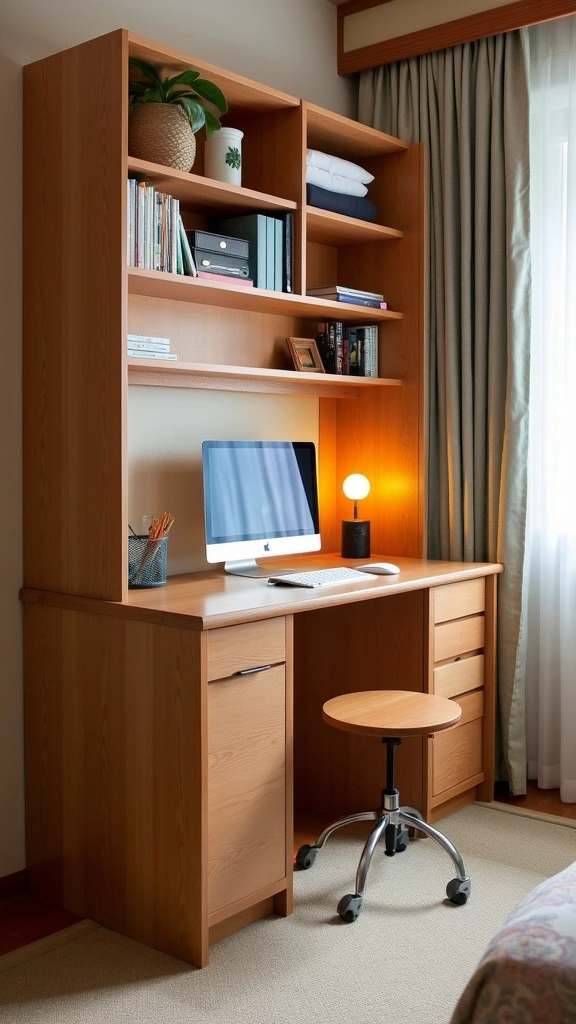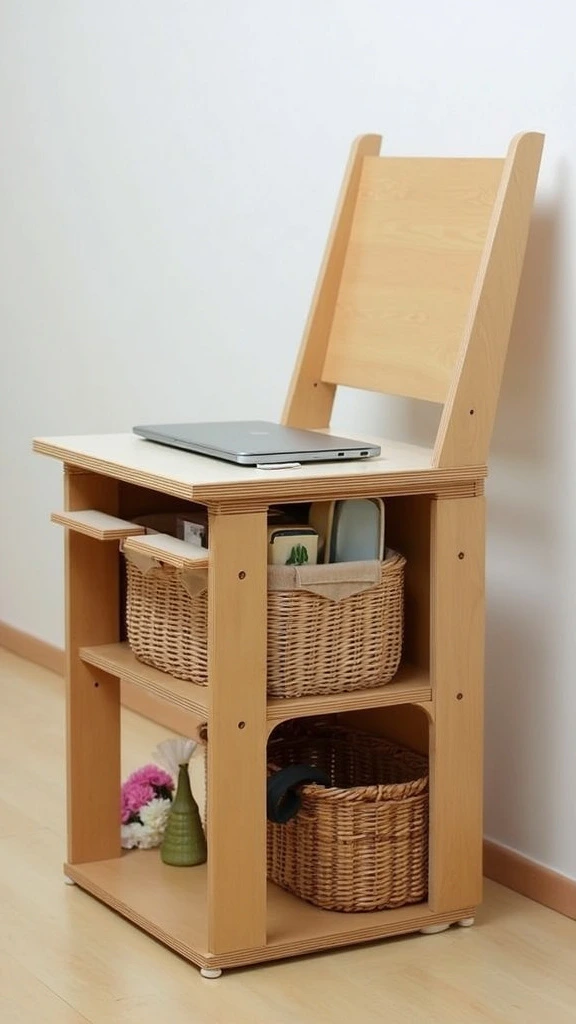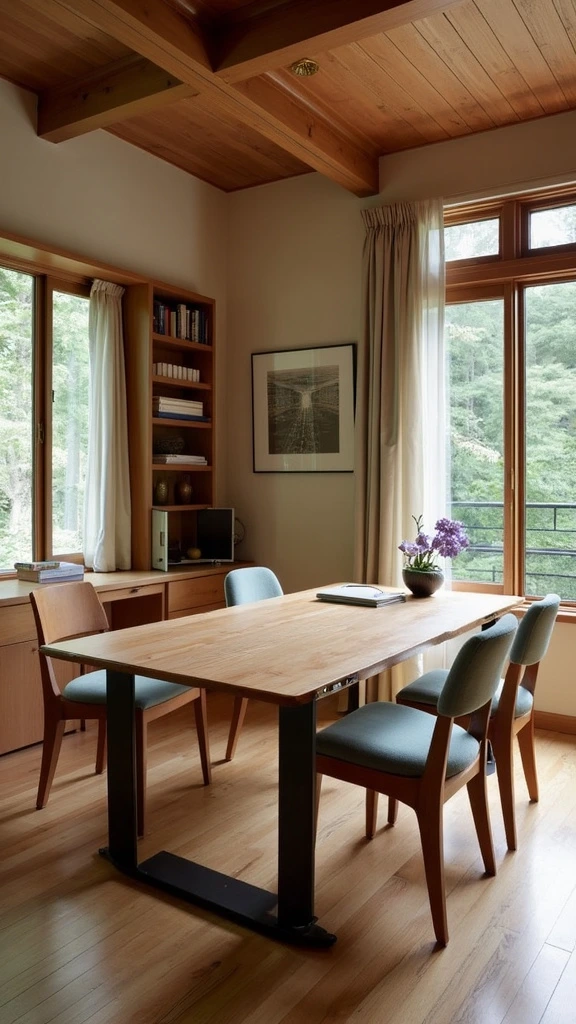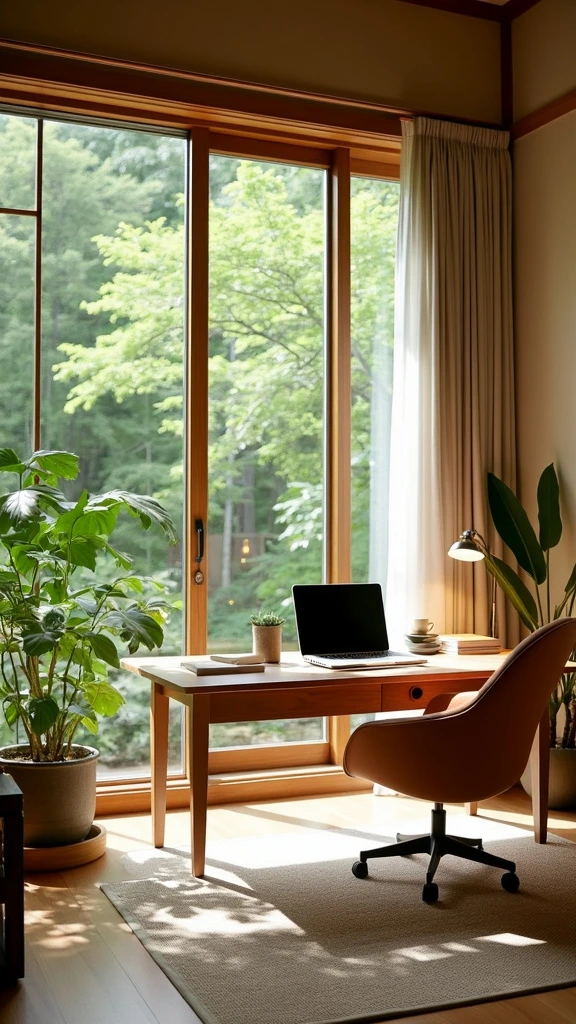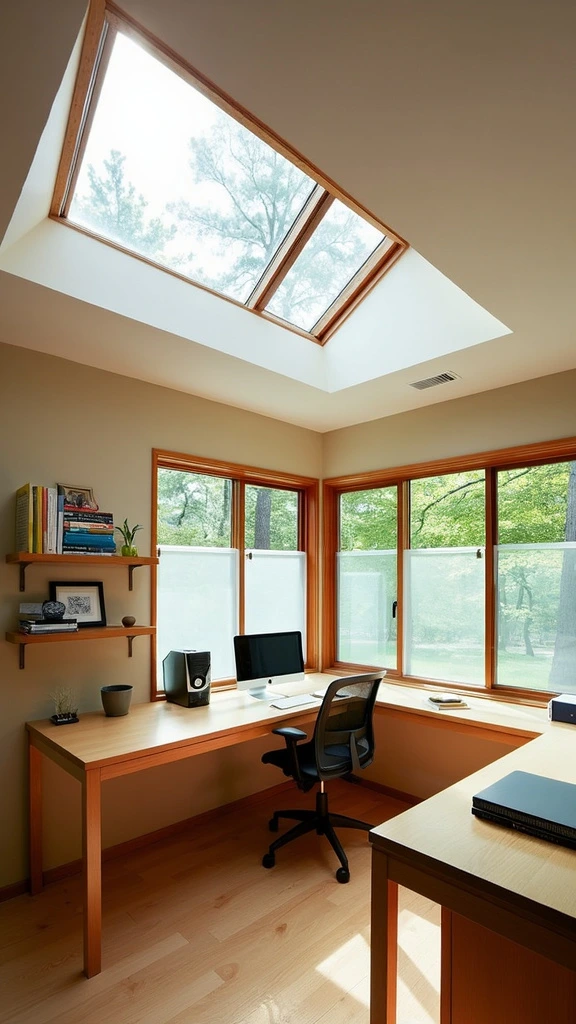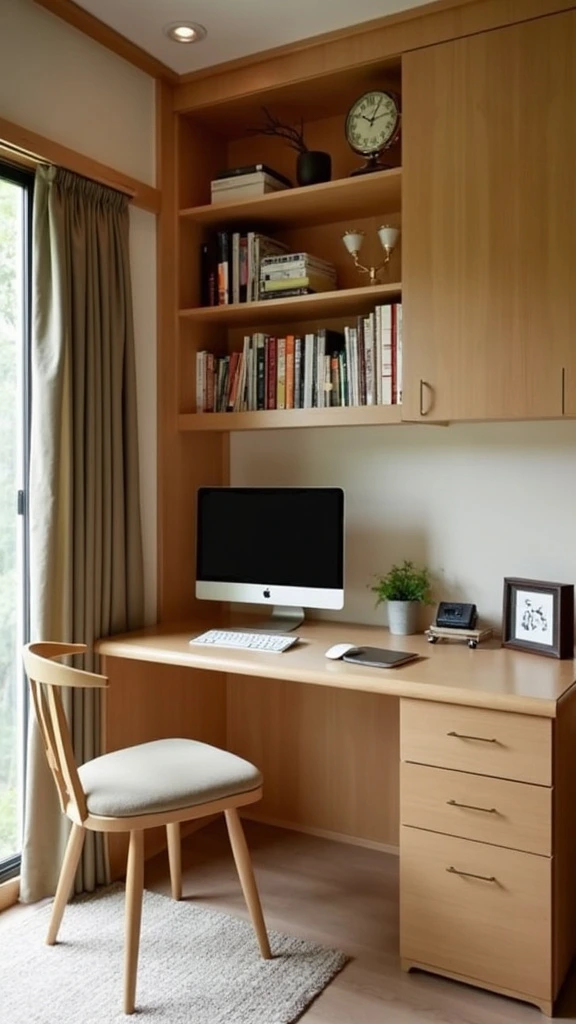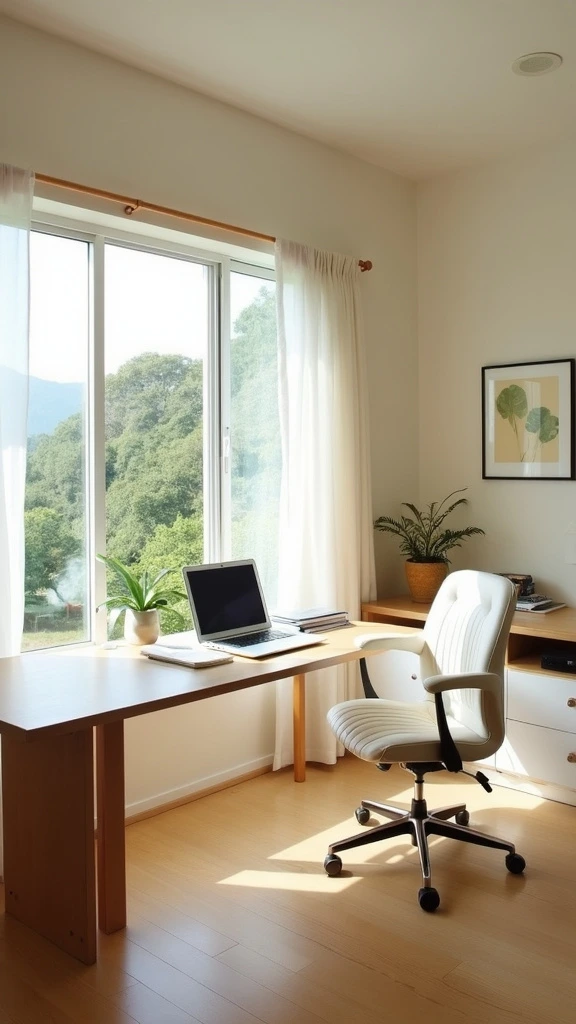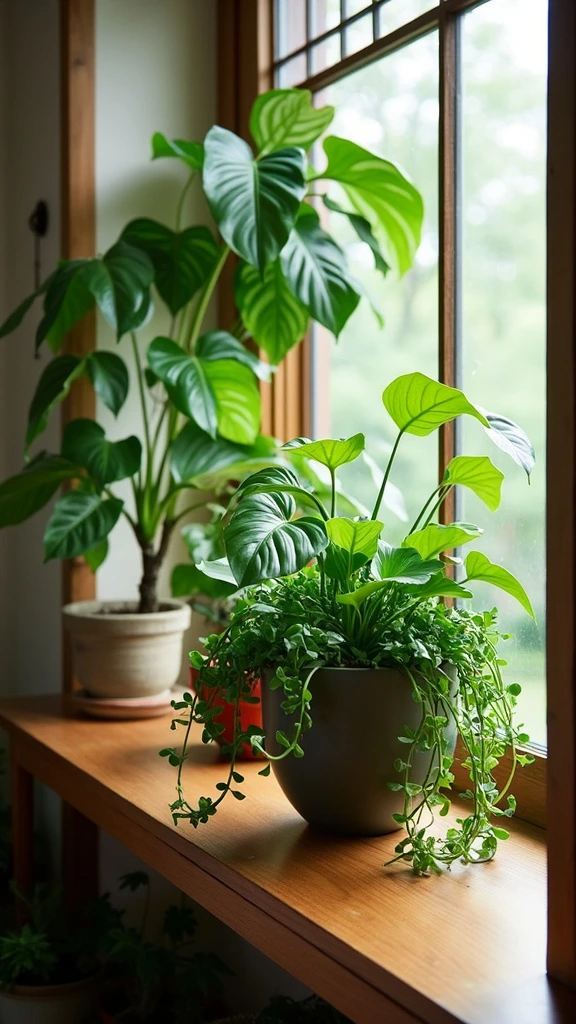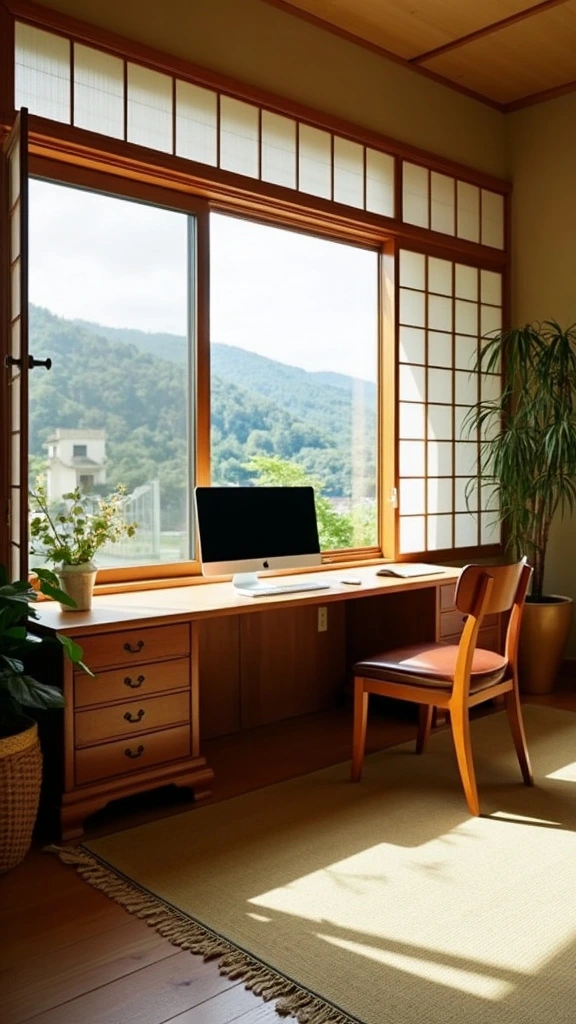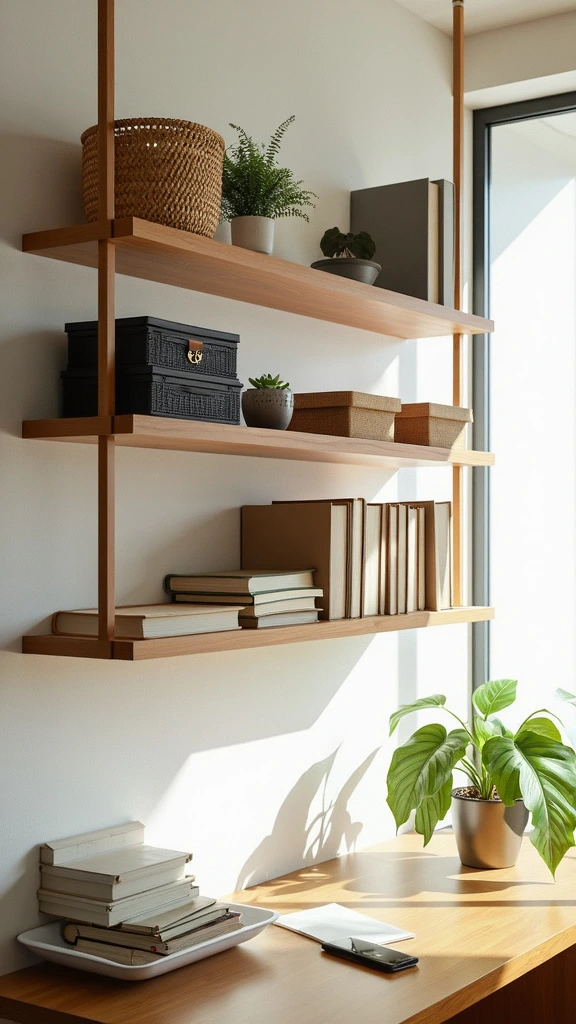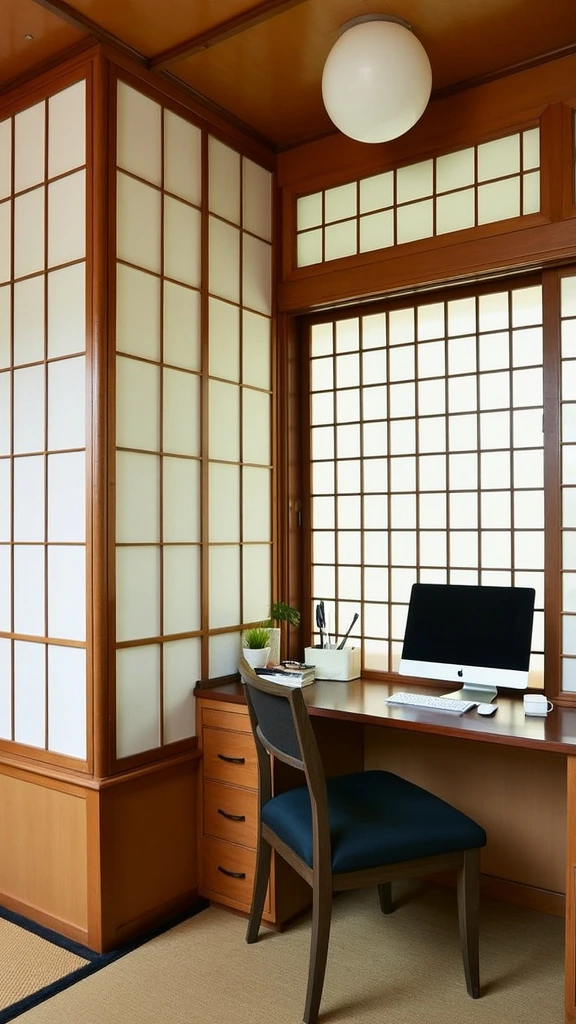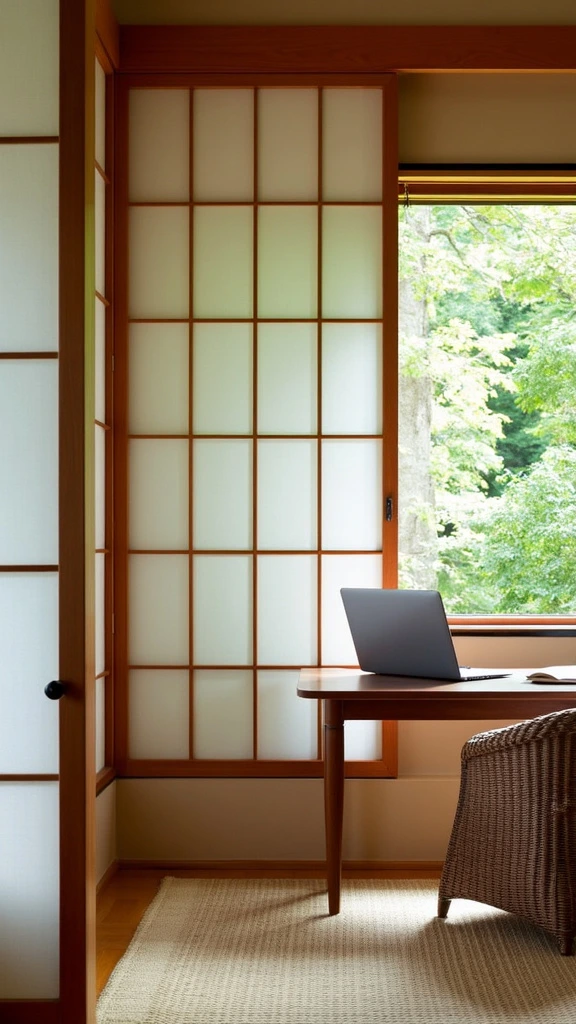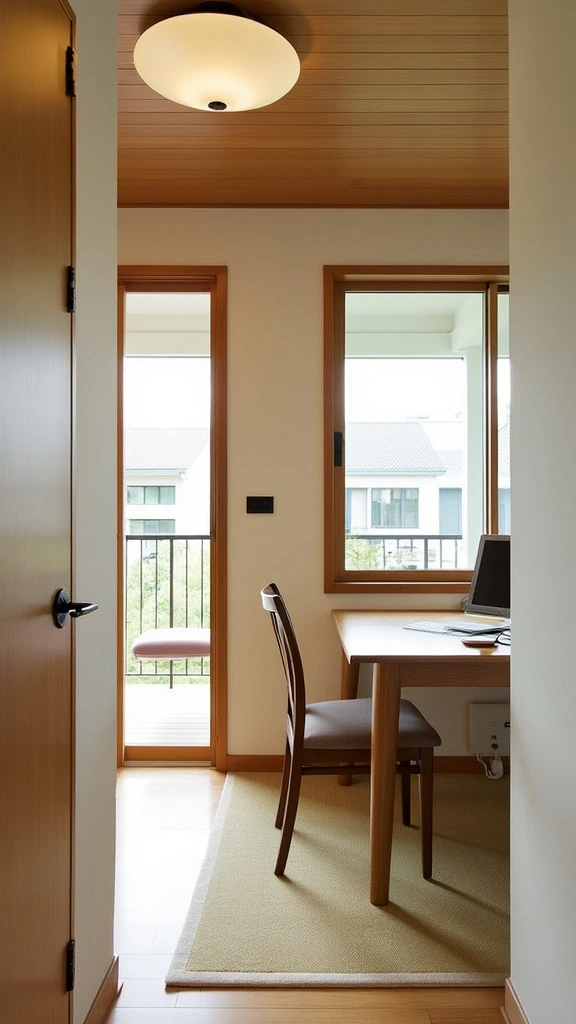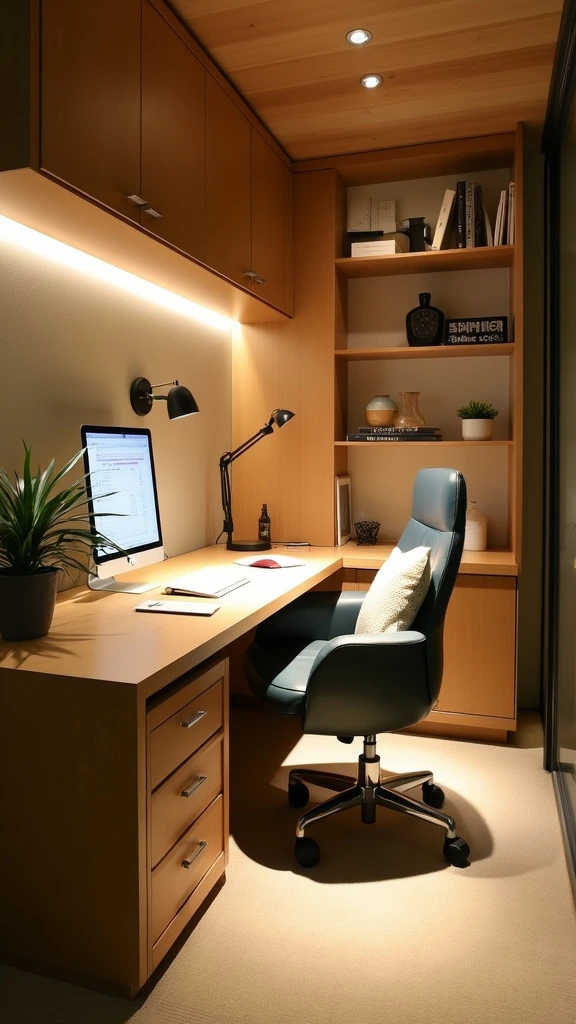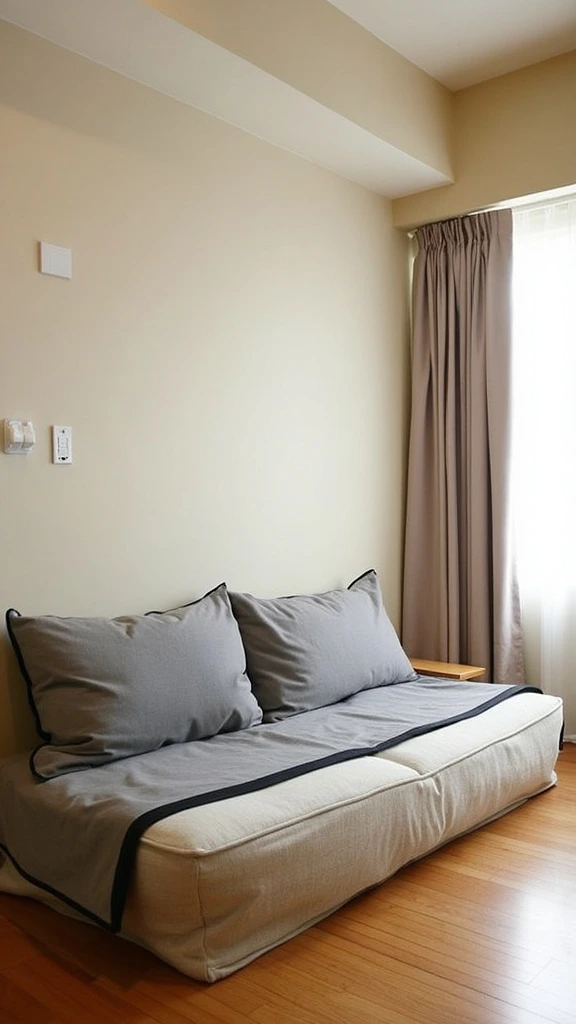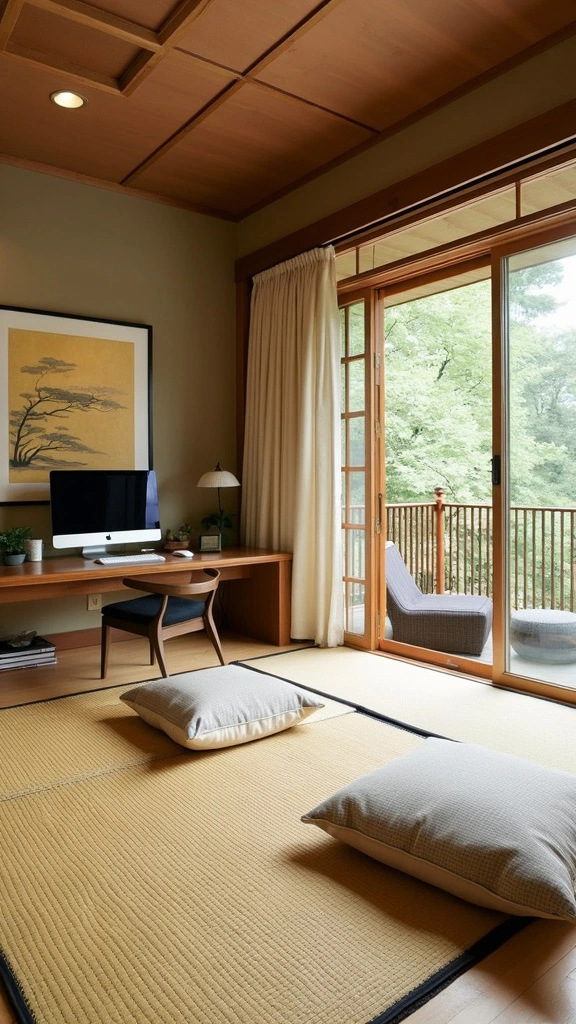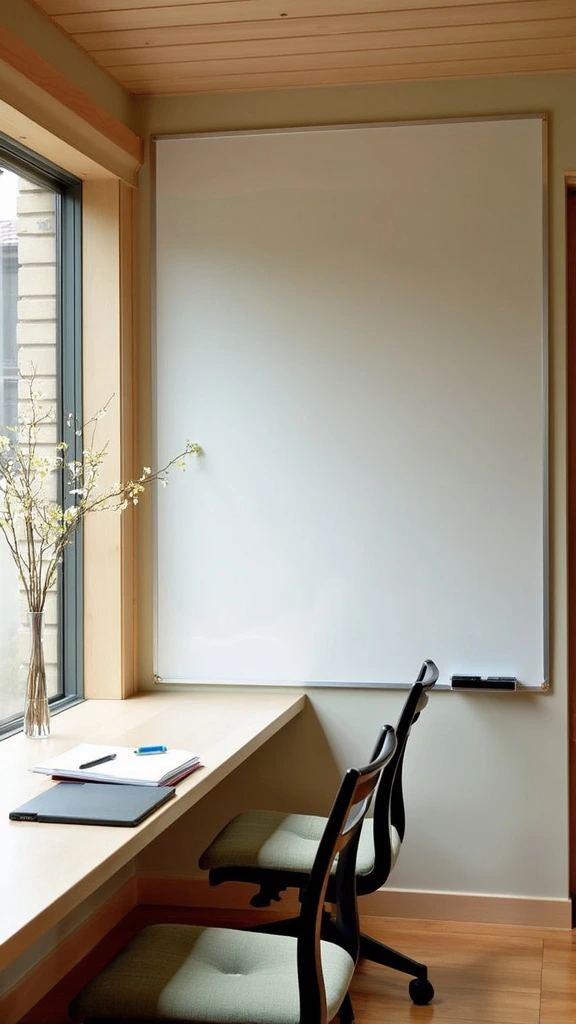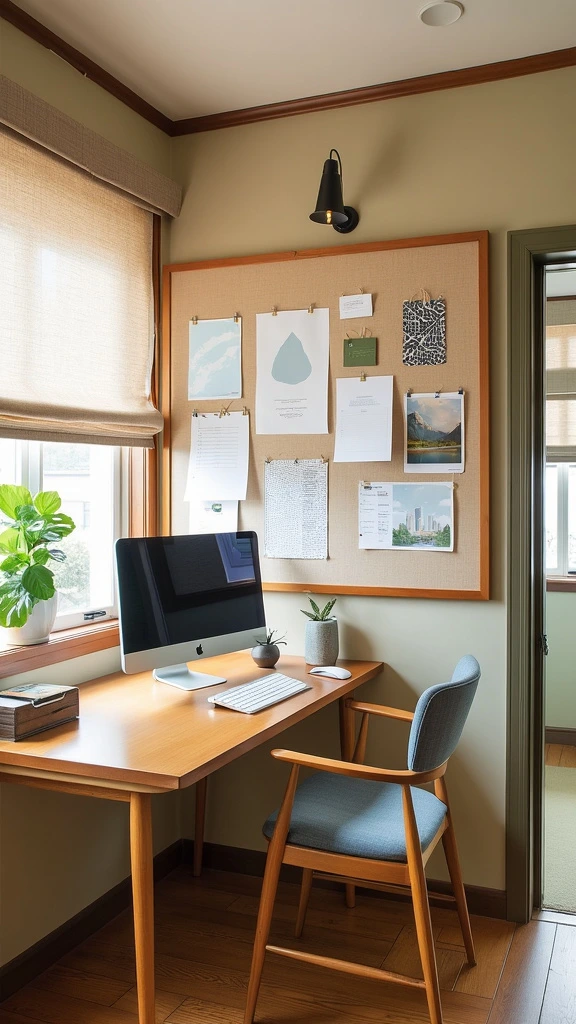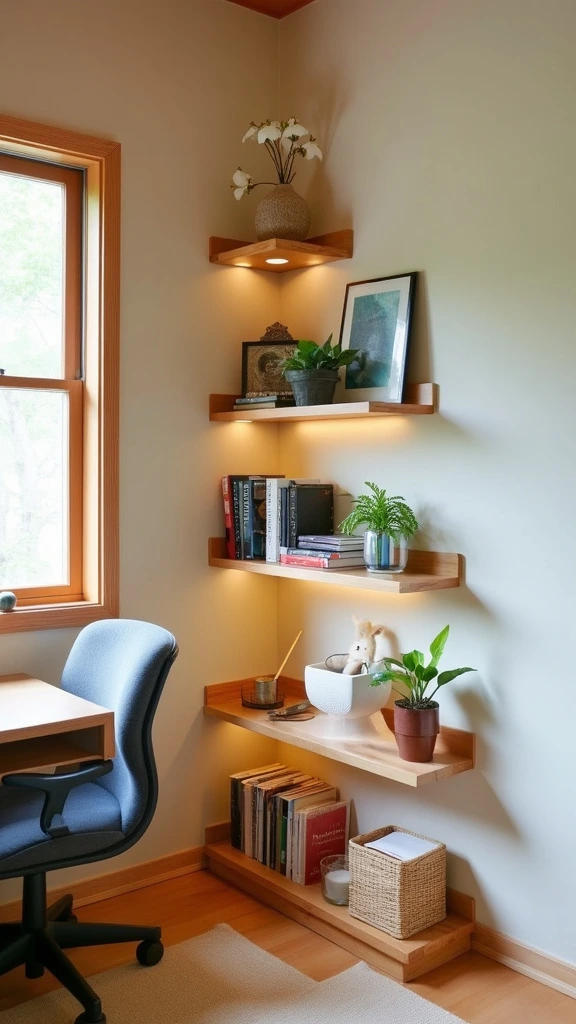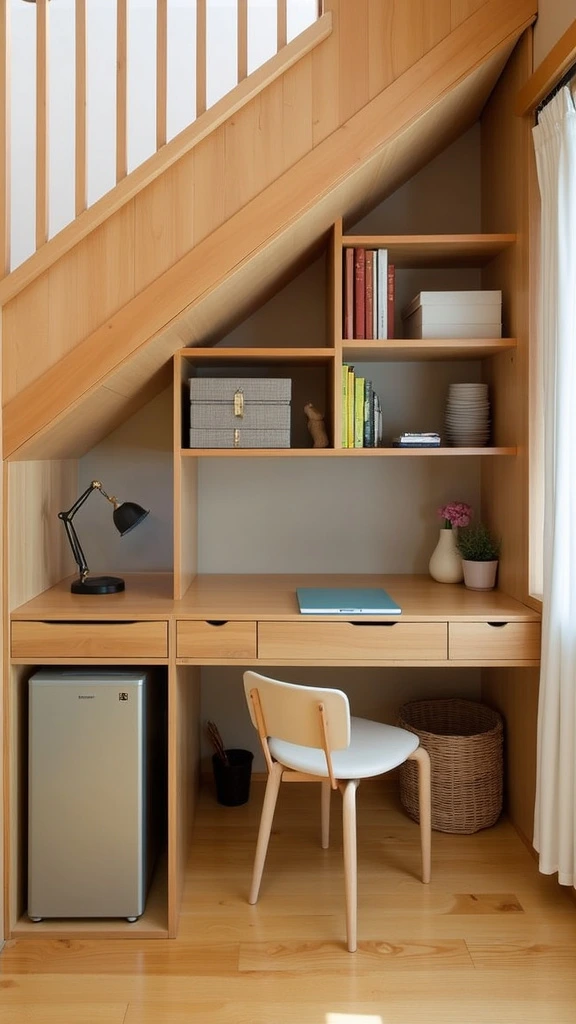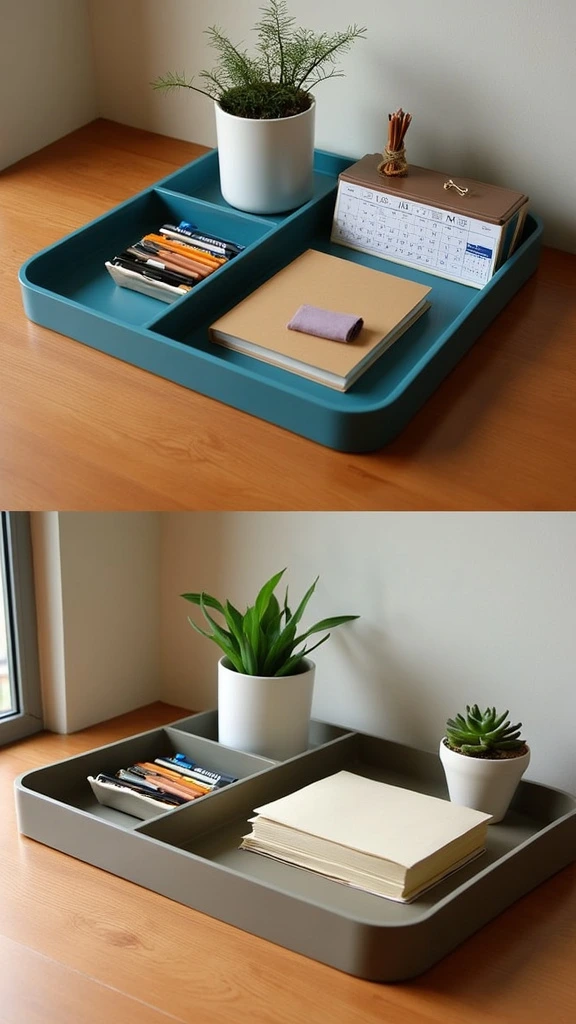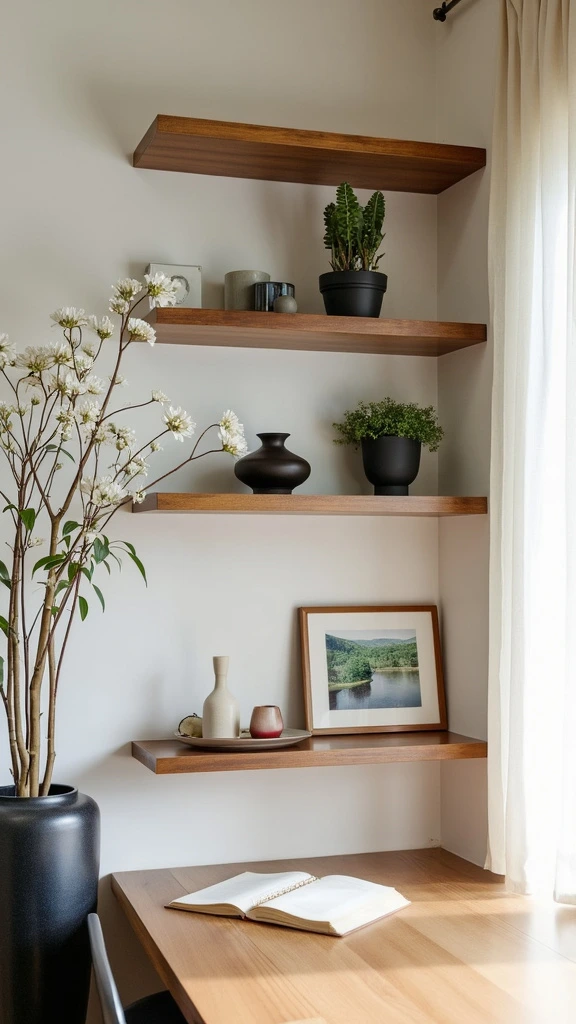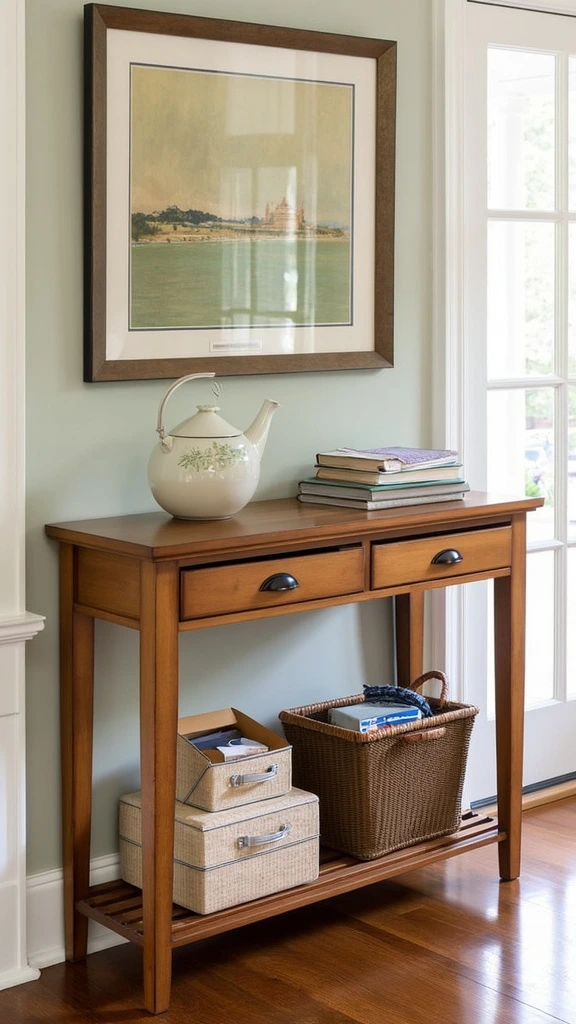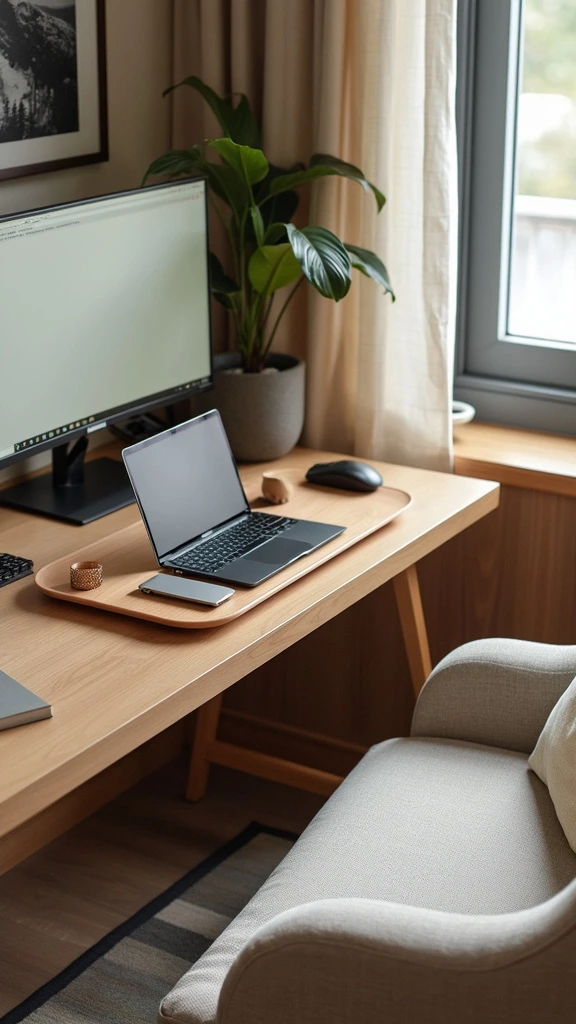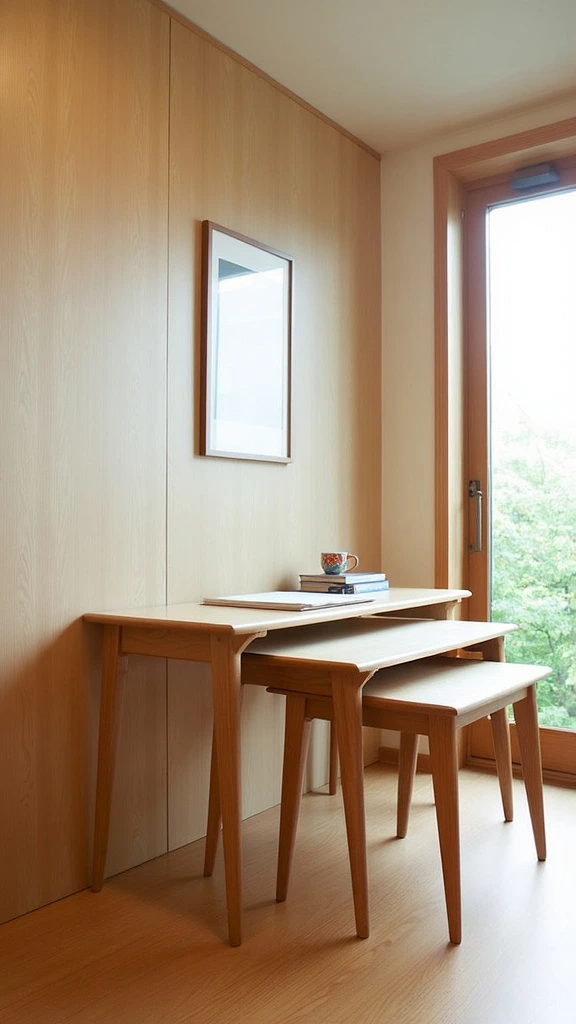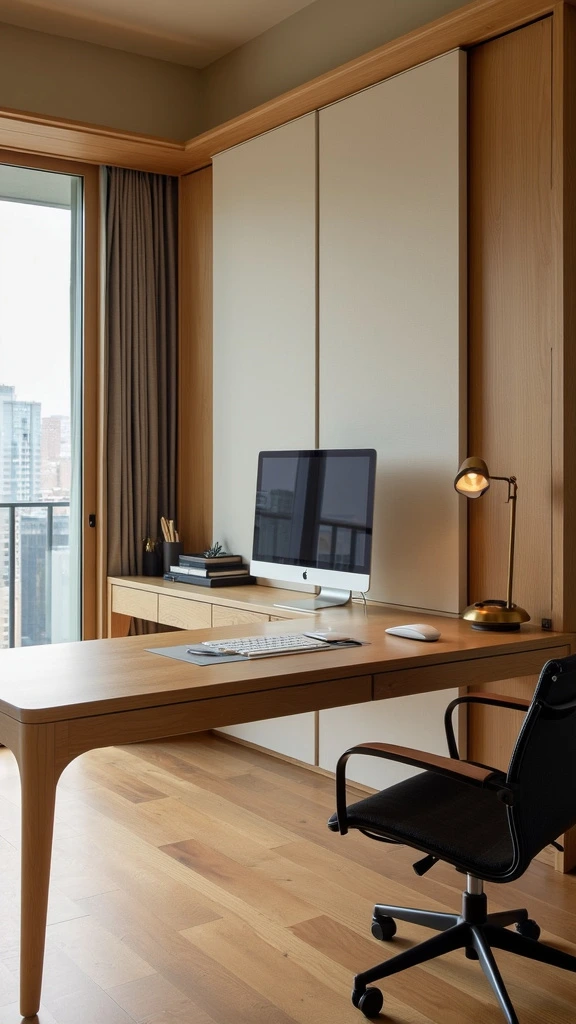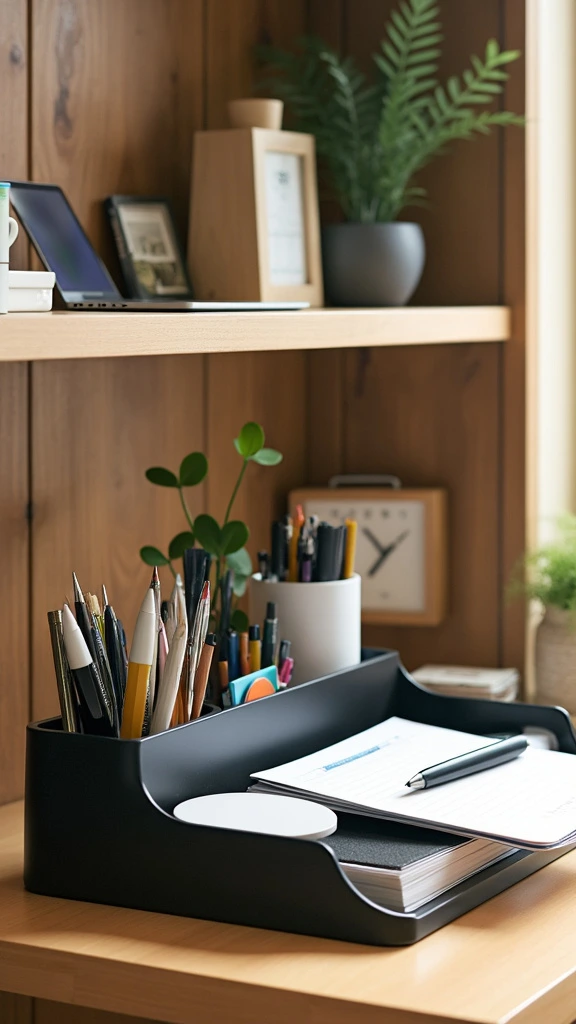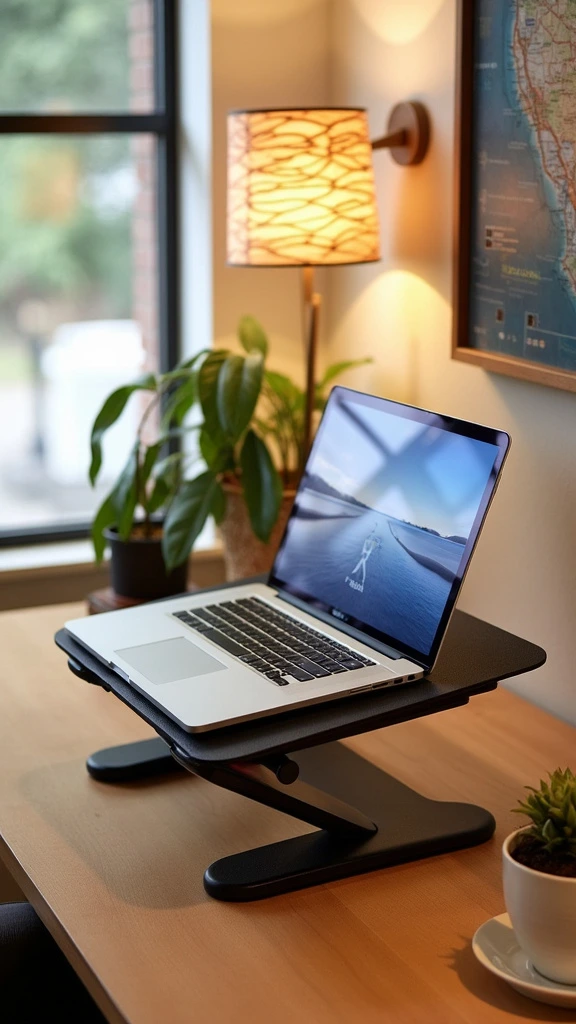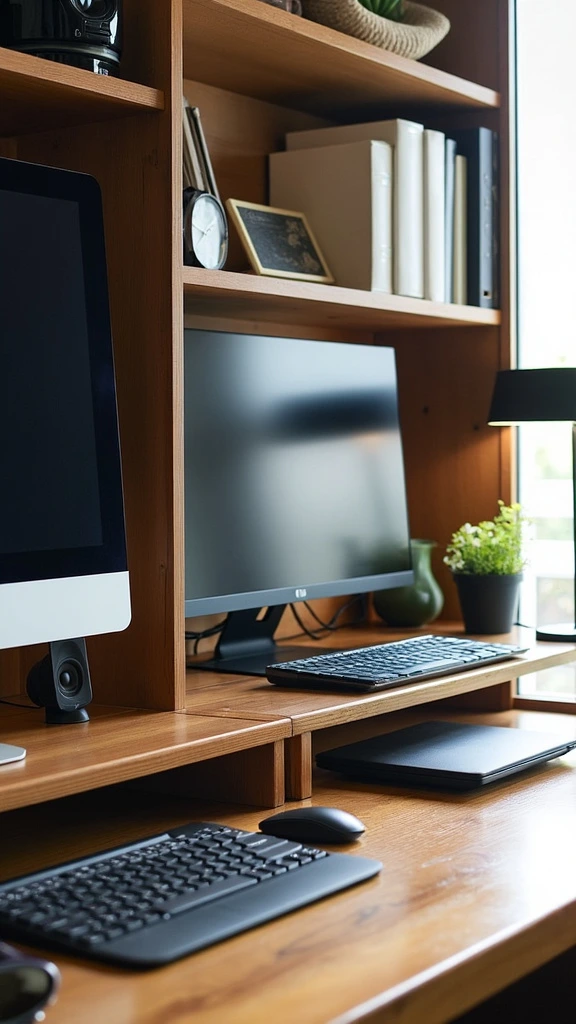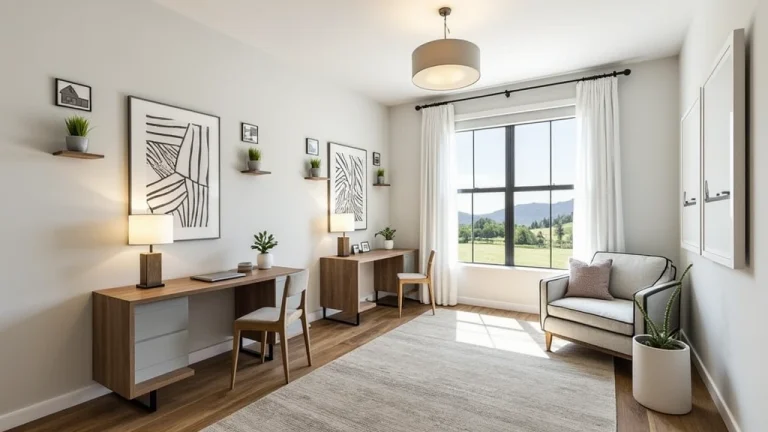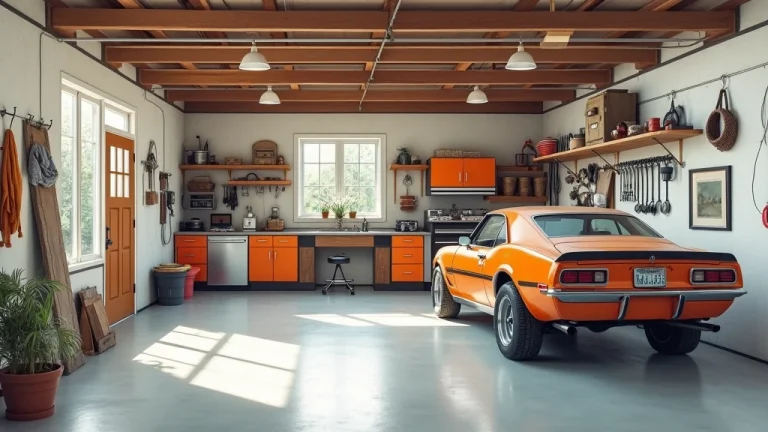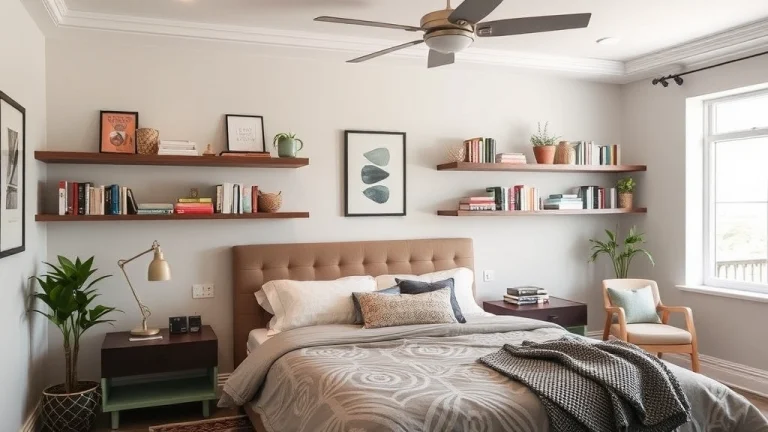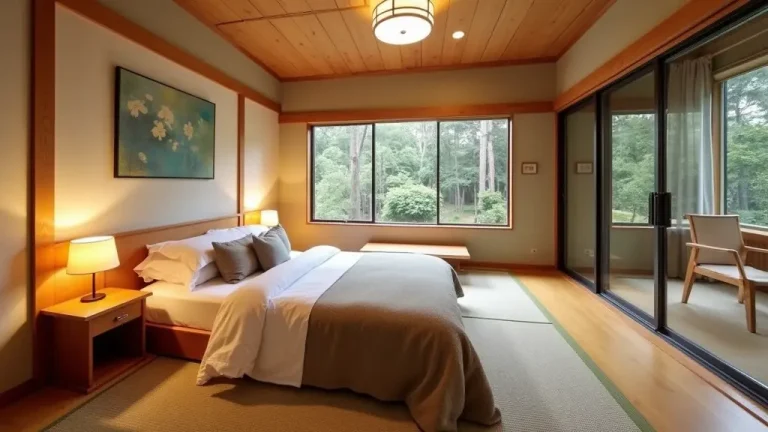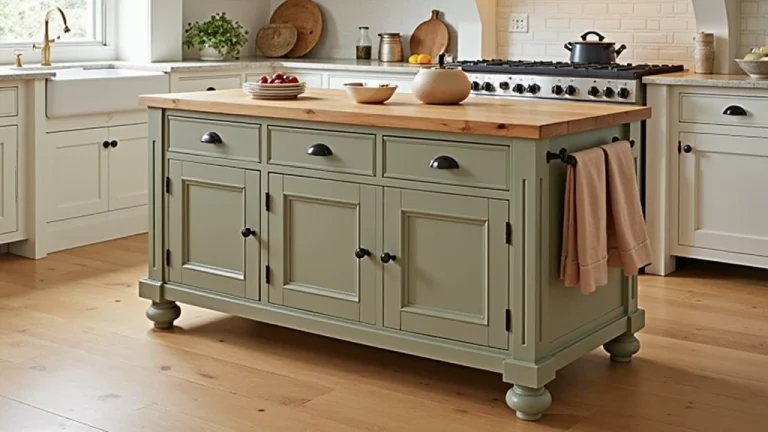If you’re struggling for space in your small home office, I’m sharing 36 incredible Japanese home office ideas to help maximize your workspace. The Japanese are masters of small space design, so their solutions for the Japanese home office are super functional and creative. Since many Japanese homes are quite compact, they’ve perfected ingenious storage techniques and multipurpose furniture.
I’m always impressed by their clever use of vertical space and every nook and cranny. As an avid blogger on organization and interior design, I want to bring some of these brilliant Japanese office ideas to your attention. Whether you need built-in storage, ergonomic seating or natural light, I’m confident you’ll find inspiration!
1. Built-in Cabinets
One of my favorite Japanese space-saving techniques is built-in cabinetry. Rather than having bulky furniture that wastes floor area, the Japanese install customized cabinets, drawers and shelves directly into walls. You can find cabinets of all shapes and sizes to corral clutter. For a home office, look for cabinets designed for supplies, files, electronics and personal items. Built-ins keep your space neat and maximize usable surface area. This approach is particularly popular in Japandi Home Office Designs, which blend Japanese minimalism with Scandinavian functionality.
2. Rolling Carts/Desktops
Another winning Japanese strategy is furniture on wheels. A rolling cart functions as a desktop but can easily be tucked away when not in use. I especially like carts with built-in drawers, shelves and dividers to stay organized. Some even double as mini file cabinets. For extra versatility, seek carts with adjustable height desktops. This allows working seated or standing as preferred. The convenient roll-away feature ensures a clean, clutter-free workspace.
3. Pull-Out Shelves
Drawers are handy, but pull-out shelves really take organization to new heights. Many Japanese cabinets and built-ins seamlessly blend shallow and deep pull-out shelves. This means every square inch of interiors can hold supplies without fussing to retrieve hidden items. Shelves are also fitted for easy labeling and visual access. Why dig through drawers when you can see exactly what’s available on pantry-style pull-outs? They optimize interior space like no other.
4. Murphy Beds
If space is extremely limited, consider a Murphy bed for your home office. Also called wall beds, they fold up flush against a wall, hiding away when not in use. This clears the entire room for other activities. Look for sturdy wall beds crafted from quality materials like wood. Ideal Murphy beds come equipped with a comfortable mattress and feature additional storage within the bed frame or underneath. You’ll gain a bedroom, office and storage area all in one!
5. Wall Mounted Desks
For the ultimate in space savings, try a wall mounted desk. Similar to wall shelving, these horizontal desks are fixed securely to a wall at ergonomic working height. Since they take up no floor area, wall desks maximize every inch of a mini home office. Many feature lockable storage beneath and come weighted for stability even with heavy use. I recommend wall desks crafted from moisture-resistant materials like wood, bamboo or ceramic tile to prevent wall damage. They’re a fantastic way to desk in tight quarters.
6. Ceiling Shelves
Thinking outside the box, Japanese designers frequently shelf items along ceilings too. Ceiling shelves and cabinets installed high up can stow away various objects without hogging precious floor space. Plus, ceiling storage is ideal for seasonal items or those rarely used. Track or plank shelf systems allow easy access via step stool or ladder when needed. Their overhead placement keeps clutter visually streamlined on counter levels. Ceiling storage delivers significant extra shelving without further cluttering small rooms.
7. Ladders & Platforms
For reaching ceiling-high cubbies, the Japanese use ultra-compact ladders and stepped platforms. Ladders slide right back into the rafters when finished, keeping pathways unblocked. Meanwhile, stable storage platforms double as mini step stools. Both ladder and platform allow effortless access to sky-high items without lugging around full-size steps. They maintain neatness, safety and organization throughout your high storage solutions. Combined with ceiling shelves, the options for vertical storage are endless!
8. Desk with Built-In Cabinet
Rather than separate desk and cabinetry, some Japanese furniture perfectly pairs the two. Desks featuring a built-in cabinet consolidate functions neatly. The cabinet provides hidden storage beneath the desktop surface. Look for ones with multiple shelves and drawers organized with office supplies in mind. Sliding cabinet doors keep the integrated storage concealed tidy. This desktop and basement storage two-in-one is an efficient solution in tight living quarters.
9. Chair with Built-In Storage
Why not store items in your chair too? Japanese-made chairs are often designed with built-in cubbies, baskets, and even fold-out desktop extensions. These let you keep needed items close at hand. Look for chairs boasting extra deep seats concealing storage or baskets dangling from the chair back. There may be side pockets, under-seat storage, and in some cases, built-in laptop tables too. No surface goes to waste with furniture this multi-functional.
10. Table Convertible to Desk
For homier home offices, seek furniture that pulls double-duty. Tables converting to standing-height desks are a versatile find. Tables with adjustable legs that lift the surface taller serve as dining tables but also convenient standing work areas. Others feature expandable desktop panels hiding away until needed. Tables morphing to desks keep your space nimble while saving on separate furniture costs. Their dual personality fits varied uses in limited quarters.
11. Natural Lighting near Windows
Access to windows and natural lighting is ideal for productivity and focus. However, city homes often lack huge windows. Leverage available natural light sources by situating your desk near windows or adding mirrors to bounce light around. Consider warm lighting and houseplants to improve ambiance too. Simple tweaks maximize sunlight to energize your body and mind for better work. Utilizing proximity to windows and mirrors makes the most of any natural light opportunities.
12. Skylights
If windows are scarce, consider adding a skylight. Skylights flood interiors with natural brightness. They utilize overhead space that regular windows can’t. Installations above desks are absolutely ideal for bright, mood-boosting light. Skylights come framed quite compactly too. Adding one need not disrupt ceiling layouts. Just be sure the design meets your room’s pitch and structure can support the glass. A smart small-space solution for optimal bright work lighting.
13. Vertical Space Desks
Another way to gain surface area without expanding floors is vertical space desks. Hung from the wall or freestanding, these desks extend up towards the ceiling. They provide ample work surface towering high above ground level. Yet their narrow footprint keeps floors clear. Plus, cabinets and enclosed storage often flank the tall vertical profile for concealed files and supplies. Vertical space desks deliver maximum desk real estate where every inch matters most.
14. Light-Color Paint
Coat interior walls with very light colors like soft pastels or white to make rooms feel radically bigger. Brighter hues bounce daylight wavelengths long distances. It’s a surprisingly effective trick for smaller offices dependent on windows. Consider all-white interiors for maximum reflectivity and spacious impressions. But no need to go full white-out, light accents in soothing tones expand spatial perceptions too.
15. Plants for Fresh Air
Incorporate some potted plants to naturally cleanse indoor air and refresh your energy levels. Houseplants purify the air and some even release moisture. This increases humidity which can soothe eyes, skin and respiratory systems over long workdays. Plus, their verdant greenery injects liveliness into stark workspaces. Looking at and caring for plants offers quick mindfulness breaks too. Their presence lifts spirits in limited quarters.
16. Mirrors for Increased Light
Use mirrors strategically placed to take incoming natural light and mimic its path around rooms. Wall-mounted or standing mirrors intercept and distribute light much farther. They act as windows reflecting brightness where actual windows cannot reach. Just be sure any desktop mirrors don’t cause glare on computer screens. Proper mirror placement extends your natural light sources significantly within the small confines of your Japanese-inspired home office.
17. Hanging Shelves
Make use of vertical wall space with hanging shelves. Mount a floating shelf anywhere you need some out-of-reach storage. ideal locations are above window areas, next to desk surfaces or inside entryways. Shelves hug walls without jutting out, so they never get in the way. Pick shelves with glass backs to see contents at a glance or closed backs for discreet tidying. Add baskets, trays or dividers as needed. Hanging shelves capitalize on under-used high wall areas.
18. Folding Screens
Traditional paper folding screens aren’t just decorative – they’re highly practical room separators. Screens of wood or metal frames wrapped in paper slide together to partition spaces without walls. Use them to cordon off a home office when not in use but open right up for an open-concept floor plan. Their slim design won’t bulk up cramped quarters. And bright patterned paper can cheer up any workspace. Folding screens optimize floor space smartly.
19. Shoji Screens
For a softer partitioning option, shoji screens made of rice paper stretched on wooden frames let diffused natural light filter through. Their translucent panels divide rooms visually but not visually or aurally. Leave screens open for an airy office vibe or slide them mostly closed for a separate work zone. Shoji screens provide acoustic and visual privacy without bulky solid walls crowding limited space.
20. Pocket Doors
Reclaim valuable floor space with pocket doors. Rather than swinging out into pathways, pocket doors neatly disappear into walls when open. This keeps walkways unblocked. Look for modern track systems or sliding panels outfitted with glass for natural light transmission. Pocket doors optimize traffic flow, separation and precious inches in tight quarters.
21. Zone Lighting
Target lighting precisely where needed with zoned fixtures. Under-cabinet lights, desk lamps and overhead spots illuminate work surfaces without generally over-lighting the entire space. This saves energy too. And adjustable task lights position beams exactly on projects. Zone lighting keeps the workspace bathed in focused brightness without losing intimacy due to harsh full-room lighting. It’s a great solution for combined living/working areas.
22. Futons
For casual seating options that stash away easily, futons are excellent. Their thin mattresses fold in half or roll up tightly for compact storage. Place futons against walls as occasional seating that vanishes when not in use. Choose covers in sturdy fabrics to preserve their shape through regular use. Futons furnish rooms minimally while occupying very little floor space.
23. Tatami Mats
Traditional Japanese tatami mat flooring serves workspace and seating needs together. Individual rice-straw mats install together aerating a room naturally while providing durable surfaces. Use a few large tatami for your desktop area and others as floor cushions doubling as seats or ottomans. Roll up tatamis when not in use for ultimate streamlined simplicity. Their inherent breathing element also keeps air fresh.
24. Whiteboards
Maximize every inch of wall real estate by adding vertical whiteboards for reminders, planning and brainstorming. Magnetic boards erase cleanly so you can jot down ideas everywhere. Mount boards beside or above your desk surface to optimize surrounding wall space or install them on exterior sliding patio doors for extra board space too. Change up whiteboards daily for visual interest as well.
25. Bulletin Boards
For displaying important documents, schedules and inspiration, bulletin boards serve well. Their pinable surfaces utilize vertical wall areas near your desk. Add visual appeal with a decorative backing fabric or material. Change up the look monthly by rotating what’s on display. Bulletin boards keep you organized with tailored style in a small home office.
26. Corner Shelving
Sneak storage into awkward triangular nooks using corner shelves. Their geometric designs nest neatly into where walls meet without blocking pathways. Stack shelves ascending towards the ceiling for a linear look. Corner shelves showcase cute trinkets or necessities where regular cabinets fail to reach. Don’t miss out on every square inch with creative corner solutions.
27. Under-Stair Storage
The oft-forgotten triangular space under staircases presents perfect nook for hidden storage. Install floor-to-ceiling shelving, cabinets, or even a compact desk or bench with drawers. Add a curtain or sliding door for concealed utilization. Under-stair storage takes advantage of un-space no one else utilizes yet provides smart solutions tucked away discreetly.
28. Desktop Organizers
Keep work surfaces clutter-free with desktop organizers. Tray organizers sort office supplies, while pen holders or mini filing cabinets bring orderliness. Calendars mounted on stands sit neatly out-of-the-way but viewable. Caddies on casters roll near or stash beneath desks. Make the most of each square centimeter using coordinating desktop accessories tailored for tidiness.
29. Floating Shelves
Floating shelves suspend from walls unobtrusively to provide horizontal surfaces wherever vertical storage is needed. Mount them above desks for displaying photos, plants or references. Install shelves in corridors for launching utilitarian decorations. Float shelves capitalize on unused wall real estate without further congestion. Their modern look suits even minimalist spaces.
30. Console Tables
Serve dual purpose with a console table near entryways. Provide a surface for clearing mail and gear while the bottom shelves or drawers lend storage underneath accessible by all. Their versatile size and style fits many areas but doesn’t overcrowd tight passages. With a table, grab zones stay neatly organized.
31. Lap Desks
For working anywhere comfortably, a lap desk allows stationary mobility. Their portable tray design perches securely across your lap wherever you curl up. Take virtual meetings from the couch or catch up on paperwork reclined in bed. Folios and stands provide ergonomic laptop propping too. Flexible lap desks liberate the home office beyond one location.
32. Nesting Tables
Nesting tables fold their legs and stack together neatly for stowing away. But unfurled they provide versatile surfaces. Use one as a desk and others as occasional side tables. Centralize a nesting coffee table for meetings too. Their collapsibility ensures a clean floor plan yet furnishes flexibility.
33. Sliding Desk Panel
A sliding desk panel screens your workspace for focus yet reveals fully for collaboration. Store the panel behind or beside the desk surface out of the way. Write with privacy and slide open to team up – it’s the best of both worlds. The panel inserts discreetly without bulking up.
34. Desktop Organizers
Tame clutter with desktop organizers. Trays, pen cups and stacks keep supplies corralled yet retrievable. Calendars on bracket stands sit neatly above desks. Roller caddies stow out of sight below but roll near for easy access. An assortment of dedicated desktop accessories fosters organized efficiency.
35. Laptop Stands
Raise laptops to eye level ergonomically using laptop stands. Models allowing multiple device propping are even better for simultaneous notes. Plus standings offer more airflow than laptops laid flat. Closed they nest for portable productivity anywhere at home too.
36. Tech Accessories
From charging docks and USB hubs to extra monitors and speakers – thoughtfully arrange tech accouterments. Sturdy racks display everyone’s gadgets untangled yet secured. Together your devices harmoniously streamline workflows in compact spaces.

